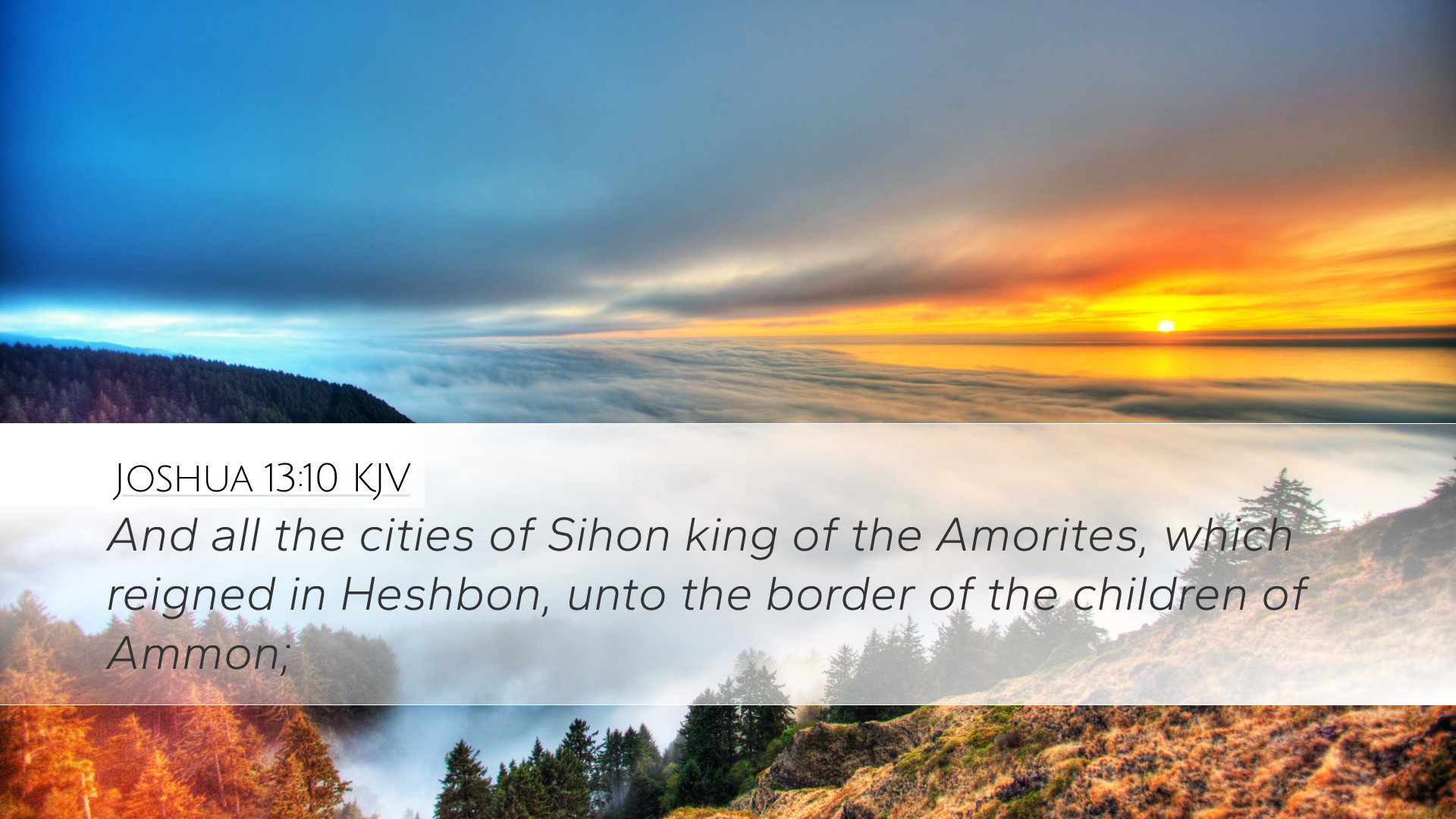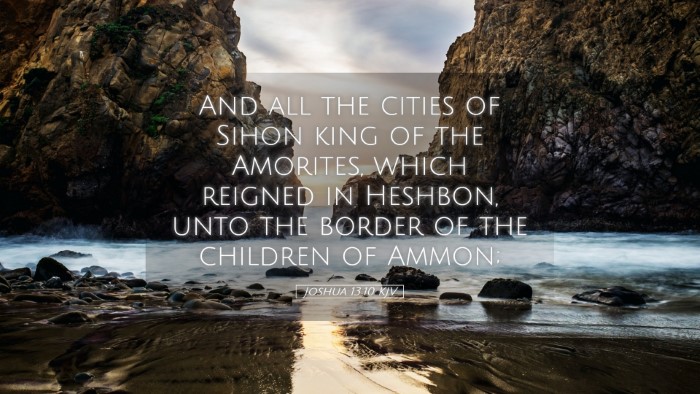Commentary on Joshua 13:10
Joshua 13:10 states: "And Gilead, and the border of the Geshurites and Maachathites, and all mount Hermon, and all Bashan which was called the land of giants."
Contextual Background
This verse appears in a pivotal moment within the narrative of the conquest of Canaan. As the Israelites begin to settle into the Promised Land, God commands Joshua to outline the territories that remain to be allocated to the tribes. Joshua 13 marks the transition from conquest to settlement, emphasizing the importance of land as a divine inheritance.
The Significance of Gilead
Matthew Henry highlights that Gilead is not merely a geographical location but symbolizes spiritual refuge. It is described as a place of healing, drawing parallels to segments of Christ’s ministry. It signifies the blessedness of God's provision for His people.
Insights on the Geshurites and Maachathites
Albert Barnes comments on the mention of Geshurites and Maachathites, suggesting that these groups represent the remnants of the original inhabitants whom the Israelites must contend with. Their presence indicates the necessity for spiritual warfare in securing God’s promised blessings.
Mountain Hermon and Bashan
Adam Clarke presents an analysis of Mount Hermon and Bashan’s significance, referring to the grandeur of these lands. Mount Hermon, standing as a prominent peak, is often associated with the divine majesty and strength of God. The land of Bashan, frequently referred to as the land of giants, represents not only physical strength but also the opposition the Israelites faced.
The Land of Giants
Clarke notes the mystique surrounding Bashan because of its association with giants (Rephaim). This phrase serves as a reminder of the formidable challenges that confront those who faithfully follow God's calling. Pastors and theologians can reflect on this as an encouragement to confront their own “giants” with faith and reliance on God's power.
Theological Implications
This verse captures the essence of God's promises and the call to possess them. It highlights a dual theme of blessing and challenge in the Christian walk. The implications for modern believers are significant:
- Faithfulness and Obedience: The allocation of land is contingent on Israel’s fidelity to God's commands.
- Confronting Adversity: The presence of the Geshurites and the giants in Bashan reminds believers of the obstacles that must be addressed through faith.
- Divine Provision: Gilead symbolizes healing and refuge, emphasizing God's unwavering support in the fight against spiritual and physical adversities.
Practical Application
This passage invites reflection on various aspects of Christian living:
- Spiritual Warfare: Just as the Israelites faced physical giants, Christians encounter spiritual warfare. Ephesians 6:12 reminds believers of the nature of their struggle and the need to be equipped with God’s armor.
- Understanding God's Promises: The land promised to the Israelites serves as a type of spiritual rest found in Christ (Hebrews 4:1-11). Pastors can encourage their congregations to seek their own spiritual inheritance.
- The importance of Community: The allocation of land emphasizes the unity of the tribes. In modern contexts, this highlights the necessity of community within the body of Christ.
Conclusion
Joshua 13:10 encapsulates a rich theological narrative that urges believers to reflect on their own spiritual inheritance, to confront the "giants" in their lives, and to recognize the importance of community and divine guidance. The commentaries of Henry, Barnes, and Clarke offer profound insights that enrich our understanding and encourage faithful living.


